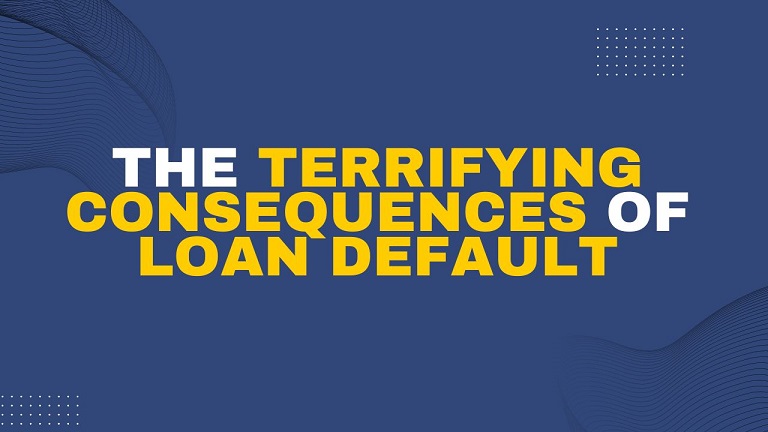The Terrifying Consequences of Loan Default in 2024
A loan, whether extended by banks or other financial institutions, serves as a vital tool for borrowers to address their immediate financial needs.
This financial arrangement operates on the premise that the borrower commits to repaying both the principal amount and interest at the conclusion of the loan term.
In essence, this dynamic benefits both the borrower, who gains access to much-needed liquidity, and the lender, who stands to earn interest on the principal sum.
Financial institutions typically offer a wide array of loans tailored to various purposes. The advent of Equated Monthly Installments (EMIs) has further simplified the repayment process for borrowers, allowing them to settle the loan amount over a specified period through manageable installments.
However, opting for an online personal loan from a financial institution necessitates a stable cash flow to assess one’s capacity for repayment.
Life, as it often does, can spring unexpected challenges on individuals. Bankruptcy, unforeseen accidents, and other adversities can precipitate an unanticipated financial strain, pushing borrowers into a perilous financial predicament.
While lenders typically employ several measures to encourage timely payments, understanding your rights in such circumstances and the potential consequences of loan default is crucial.
-
Credit Score Plummet
Each lender shares information regarding a borrower’s repayment history with credit rating agencies like CIBIL in India. Consequently, any lapse or default in EMI payments can lead to a decline in your credit score.
Your credit score significantly influences a lender’s decision to grant a loan; a lower score implies a higher risk profile, making lenders less inclined to provide assistance.
Persistent defaults could even categorize you as a Non-Performing Asset (NPA), an unfavorable label that can result in not only higher interest rates but also limited loan availability.
-
Frequent Bank Reminders
While most lenders allow minor delays in payments, repeated defaults can trigger a series of reminders from the bank. After three consecutive months of default, a borrower is classified as a Non-Performing Asset (NPA), making future loan approvals unlikely.
-
Potential Legal Action
Non-compliance with these reminders often leads to legal actions initiated by the lender.
-
Imposition of Penalties
In cases involving multiple loans, lenders may impose penalties for defaults and late payments.
This is particularly relevant in the context of unsecured loans where the lender lacks collateral as security against non-payment.
-
Collateral at Risk
As a last resort, banks can legally seize collateral and auction it to recover the outstanding loan amount if repayment is not made.
In the event that you find yourself in such a predicament, it’s essential to be aware of available remedies. Communicating with your lender can yield options for timely EMI repayment. One strategy is to reduce the EMI amount by extending the loan term.
Alternatively, consider loan refinancing, also known as debt consolidation, where you apply for a new loan to repay some or the entire previous loan.
However, ensure that the new interest rates and EMIs are more manageable than those of the original loan.
Utilizing a personal loan EMI calculator can assist in estimating your monthly repayments in advance.
You may also utilize the website’s EMI calculator to determine precise EMI amounts, tenure, and loan interest rates before committing to a personal loan.
With pre-approved loan offers encompassing a variety of financial products such as home loans, personal loans, and business loans, securing financing has never been more straightforward. Discover your pre-approved offer by providing a few basic details.
Thank you for visiting Jobs Ada






